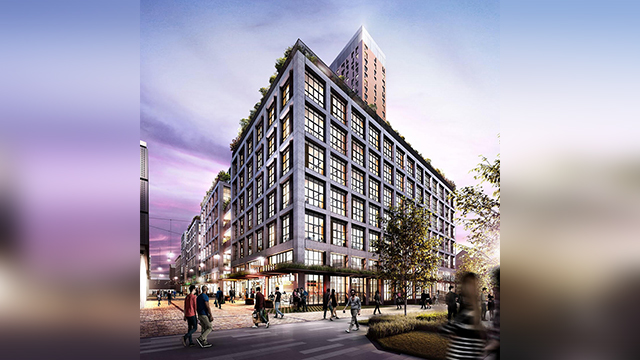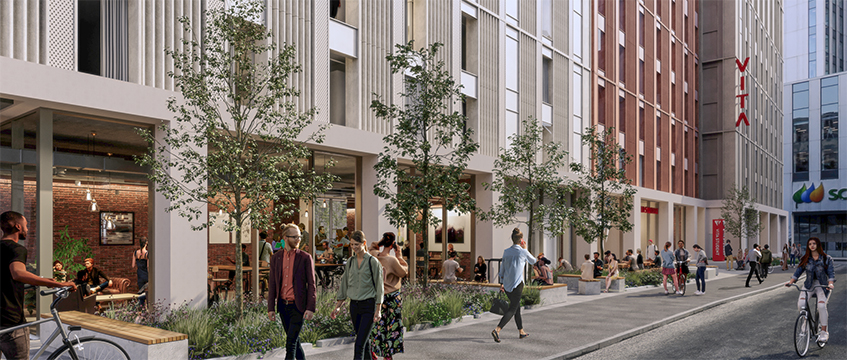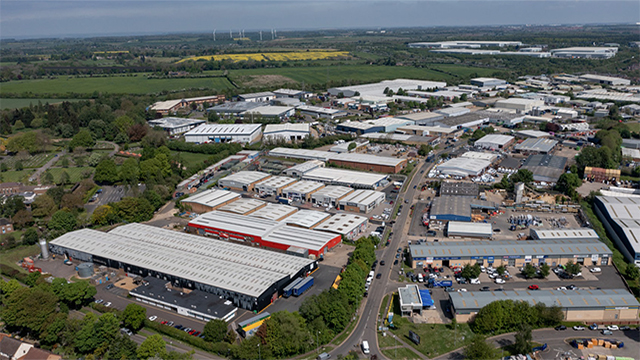The biggest property takeaways from the Budget
BUDGET 2021: Chancellor Rishi Sunak’s 2021 Budget has seen spending surge to £400bn, as the government sets out a roadmap for economic recovery.
A swathe of new policy and funds saw help for hospitality, boosts for the housing market and MMC, and infrastructure backing to support HS2 and new train stations. It also includes £4.8bn dedicated to levelling up, via the Towns Fund, a new community fund, local authority backing and a new infrastructure bank.
EG dug through the fine print to pull out the biggest takeaways for real estate.
BUDGET 2021: Chancellor Rishi Sunak’s 2021 Budget has seen spending surge to £400bn, as the government sets out a roadmap for economic recovery.
A swathe of new policy and funds saw help for hospitality, boosts for the housing market and MMC, and infrastructure backing to support HS2 and new train stations. It also includes £4.8bn dedicated to levelling up, via the Towns Fund, a new community fund, local authority backing and a new infrastructure bank.
EG dug through the fine print to pull out the biggest takeaways for real estate.
Business rates relief
Retail, hospitality and leisure businesses have been granted a further extension to the business rates relief with a 100% exemption to the end of June, followed by a 66% relief until the end of March 2022. The extended relief will be capped at £2m for businesses that were forced to close in the third lockdown and £105,000 for all others.
Help for hospitality
Hospitality and tourism businesses will have their 5% reduced rate of VAT extended for six months to 30 September, after which there will be an interim rate of 12.5% for another six months before it returns to 20% next April. They will also be eligible for grants of up to £18,000 to help them reopen after lockdown.
Housing market stimulus
The Budget confirmed two major wins for housebuilders, with the extension of the stamp duty relief on properties of up to £500,000 until the end of June, followed by a tapering off. This will allow exemptions on properties of up to £250,000 for the next three months, dropping back to £125,000 in October.
The much-touted 95% mortgages promised in the Conservative manifesto will begin next month. The government will provide guarantees to lenders allowing deposits of 5% on properties of up to £600,000.
MMC taskforce
Seed funding of £10m will support a new taskforce to accelerate modern methods of construction. The group will comprise government and private sector leaders working with the Ministry of Housing, Communities and Local Government from its Wolverhampton headquarters.
£1bn in Towns Fund deployed
Some £1bn has been allocated from the Towns Fund, across a further 45 deals, in a move to support levelling up. This has seen £211m allocated to the North West, £199m to Yorkshire and Humberside, and £175m to the East Midlands. Overall the Towns Fund will provide £3.6bn.
Community ownership
Starting in June, community groups will be able to bid for up to £250,000 from a £150m Community Ownership Fund. The finance will allow them to take over or buy local assets, such as pubs, theatres or post offices, with up to £1m available in exceptional cases for sports grounds at risk.
Community renewal and prosperity funds
A £220m UK Community Renewal Fund for local district councils and voluntary and community sector organisations, including universities, with a £3m allocation per place. The government has already chosen 100 priority places eligible for funding and will make the final call on projects approved.
The fund will help to prepare for the upcoming UK Shared Prosperity Fund which will come into force in 2021-22, replacing investment from the EU Structural Funds, which will end in 2023.
UK Infrastructure Bank
The government’s Build Back Better plan will see a new UK Infrastructure Bank with £12bn of equity and debt to finance infrastructure projects that prioritise net-zero carbon. It also includes a £375m fund for innovative R&D businesses.
Freeports named
The government confirmed the locations for eight freeports, special economic zones with their own rules and regulations, to encourage investment. The freeports will have simpler planning rules, more infrastructure funding and cheaper taxes to encourage construction, private investment and job creation.
The eight freeports will be at East Midlands Airport, Felixstowe and Harwich, Humberside, Liverpool, Plymouth, Solent, the Thames and on Teesside. All are expected to start operating before the end of the year.
High Speed 2 and rail backing
Birmingham Interchange Station will get a £50m boost for transport improvements to support regeneration at Arden Cross in Solihull. A separate £59m initiative will support construction of five new stations in the West Midlands.
To send feedback, e-mail emma.rosser@egi.co.uk or tweet @EmmaARosser or @estatesgazette
Photo by James Veysey/Shutterstock











